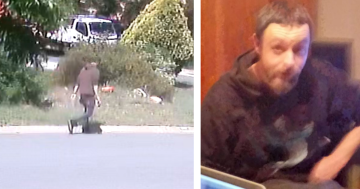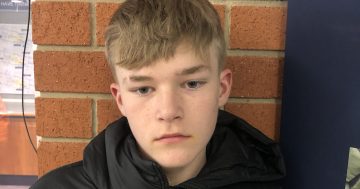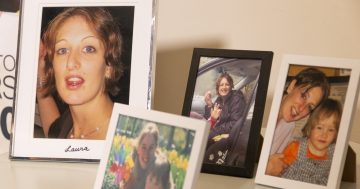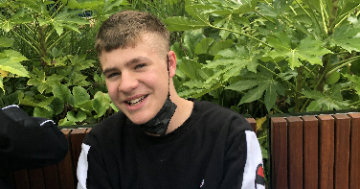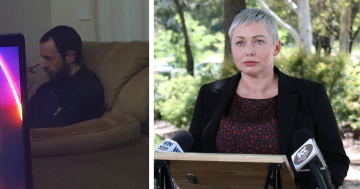This is a joint media release with the Australian Federal Police and New South Wales Police.
Australian Federal Police (AFP) Commissioner Tony Negus and New South Wales (NSW) Police Commissioner Andrew Scipione will join forces to launch National Missing Person’s Week in Sydney today.
The annual campaign is coordinated by the AFP’s National Missing Persons Coordination Centre and aims to raise awareness of the significant issues associated with missing persons in Australia.
Approximately 35,000 people are reported missing to Australian police every year. This is equivalent to one every 15 minutes. Around 20,000 of these are under the age of 18.
In 2012, the campaign takes a preventative approach with the theme of ‘Take the time to let someone know’ – focusing primarily on young people as one of the key groups at risk of going missing in Australia.
This campaign aims to reach out to young people and encourage them to let someone know where they are, or where they are going.
AFP Commissioner Tony Negus said many cases reported to police are often as simple as young people forgetting to tell their families when their plans had changed.
“About 95 per cent of people who are reported missing are located by police within a short period of time,” Commissioner Negus said.
“These statistics are encouraging but for young people, once they have been missing, research shows they are more likely to be reported missing again.”
NSW Police Commissioner Andrew Scipione said that sometimes a single phone call can mean the difference between someone just needing some time out or being reported as missing by family and friends.
“Sometimes people need a break and may leave home to get away, but we are asking them to let someone know where they are going or simply that they’re ok,” Commissioner Scipione said.
“It is not a crime to be missing, but by letting family and friends know where you are can alleviate an amount of heartache they may experience.
“If you are reported as a missing person, you can attend your local police station to let police know of your whereabouts, and police can let family and friends know you are safe and well but that you are not ready to come home.
“The main focus is ensuring all members of our community are safe and their well being is looked after,” Commissioner Scipione said.
For more information, visit www.missingpersons.gov.au
Fact sheet: prevention tips
For children
- You’re not alone – there is always someone who will listen and help.
- Make sure you let someone know if you change your plans.
- It’s OK to say NO to anything that doesn’t feel comfortable or makes you feel scared.
- If you’re in any danger or feel unsafe contact police or a trusted person.
- Know how and when to call the emergency number.
- Know how to walk safely to and from school and where to find help if needed.
- Always walk with a group of friends.
- Never approach or enter a vehicle if someone stops to ask you questions.
- If you’re alone at home don’t open the door or tell people you are home alone.
- Know how to stay safe online.
For parents
- Make sure your children know their full name, address and a trusted person’s phone number.
- Encourage your children to establish a network of trust consisting of people they feel safe to approach for help.
- Encourage your children to seek assistance from agencies such as the local fire brigade, ambulance service and police if they feel unsafe.
- Educate yourself about online risks and what safety measures are available to you and your children.
- Encourage open conversation with your children so they tell you if they experience anything inappropriate.
- Educate your children never to walk alone and always be with a friend or trusted adult.
- Educate your children about how and where to find help if needed.
- Encourage your children to inform you if their plans change.
- Know the risks of your children being abducted internationally and what measures are available to you.
- Encourage your children to be aware of their surroundings and remember details of suspicious people they may encounter, such as what they looked like and what they were wearing.
Government investigating what to do about 'the only school in Canberra without a 40 km/h zone'
Haha, Governments aren't interested in road safety if it costs money. They are only interested if… View
I would suggest the riot act look at a map. St. Edmunds has a 40 Km limit on the front of the school… View
This was not an average driver and NOTHING would have stopped him except for keeping him on remand.… View
Supermarkets are 'taking the piss' by price gouging consumers, says PM
Maybe, but there's a few mouths to feed. We got a bill 2 weeks ago for $3,000 coz they misread a… View
Enjoy the juniors Sudoku class Penfold and thanks for showing us that we don't need to pay attention… View
There's more to dying with dignity than euthanasia: palliative care is in crisis across regional Australia
@Oscar Mike The slippery slope started, when people like you decided they have the right to tell… View
euthanasia Is a slippery slope View
Albo says some things are not up for negotiation when it comes to the US and tariffs
10% may not be great but we are much better off that everyone else. The tariff regime included up to… View
Trump is a fool who doesn't care what leaders of any of the "allied" nations say including Dutton.… View












